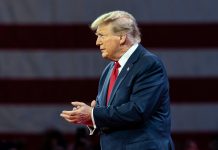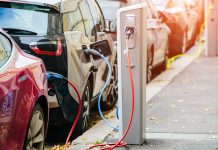On Wednesday, General Motors CEO Mary Barra penned a letter to Michael Regan, the chief of the Environmental Protection Agency, stating that the automaker would be supporting stricter emissions standards and would prefer to meet standards through a so-called “high-volume electric vehicle pathway.” Notably, however, she declined to fully put GM’s support behind Obama-era emissions rules or President Joe Biden’s tight pollution-reduction proposals.
Wednesday’s letter expressed a high level of support for stricter standards but also indicated that GM feels electric technologies should have to play a bigger role in meeting the goals. Barra said GM holds the stance that “a tailpipe-free light duty fleet” is the only way to put the auto industry on an “irreversible path towards a zero-emissions future.”
The automaker has plans to completely stop the sales of gas-powered cars by 2035 and is planning on allocating almost $30 billion to electric vehicle technology within the next four years.
Support of other carmakers
BMW, Ford, Honda, and Volkswagen are the four major automakers who came to an agreement with the State of California in the summer of 2019 that mandates they work to reduce emissions through 2026 models and meet a sole standard throughout the U.S. As part of this agreement, these automakers agreed to only build vehicles that could get over 50 miles per gallon before 2026.
In general, greenhouse gas emissions have risen in the past few years due to consumers’ increasing interest in larger vehicles. With the currently low supply and high demand conditions, GM and other automakers are expecting to sell many of their 2021 and 2022 gas-powered crossovers, SUVs, and trucks that would likely be noncompliant with the proposed California rules. This includes GM’s Chevy Silverado and GMC Sierra trucks, which both fall far short of the proposed 50 mpg mandate.
Barra suggested automakers can succeed in meeting emissions goals if they reach the California standards by 2023 and make a serious effort to push EV sales between 2024 and 2026. The letter suggested that they would then “need to focus on full battery electric vehicle deployment” from 2027 to 2035. At one point in Wednesday’s letter, Barra stated that “the auto industry is embarking upon a profound transition as we do our part to achieve the country’s climate commitments.”
Barra’s letter also included the stipulation that it would likely support a potential incentive program geared towards EV manufacturers, which would include GM. The Biden administration has expressed interest in large tax credits and incentives for EV buyers and manufacturers along with an ambitious goal to fund 500,000 EV charging stations in the coming years. Overall, Biden has previously suggested putting almost $175 billion towards the transition to EVs.
GM’s announcement came after it had previously sided with the Trump administration in its quest to eliminate California’s ability to set its own emissions standards, which are stricter than federal regulations. The Biden administration is expected to release an overall, broad environmental/climate proposal sometime next month, which will include emissions standards and other greenhouse gas emissions mandates.
Did you enjoy this article from Kimberly Hurley? Please share your thoughts, comments, or questions regarding this topic by submitting a letter to the editor here, or connect with us at newsroom@cbtnews.com.
Be sure to follow us on Facebook and Twitter to stay up to date or catch-up on all of our podcasts on demand.
While you’re here, don’t forget to subscribe to our email newsletter for all the latest auto industry news from CBT News.










